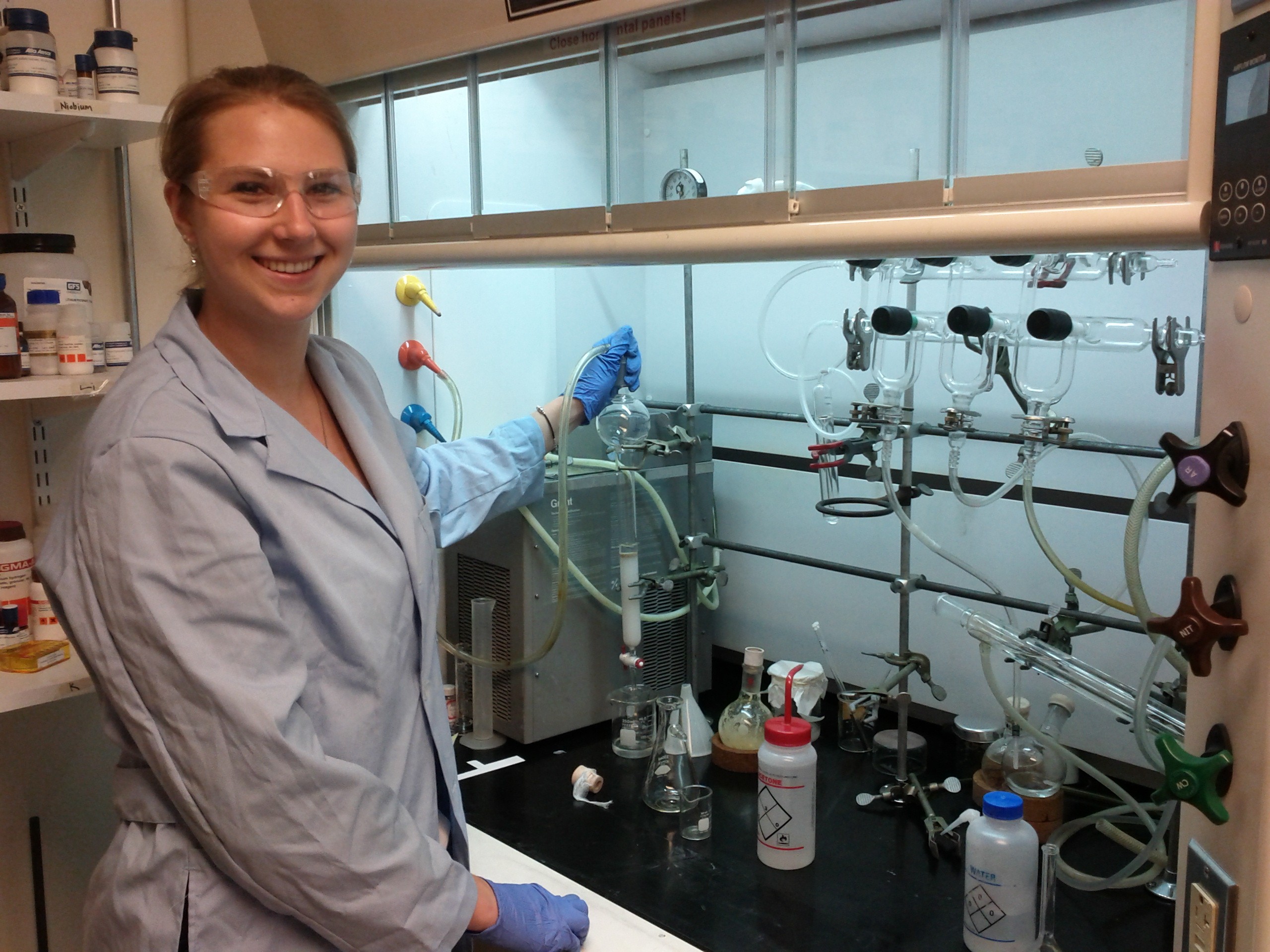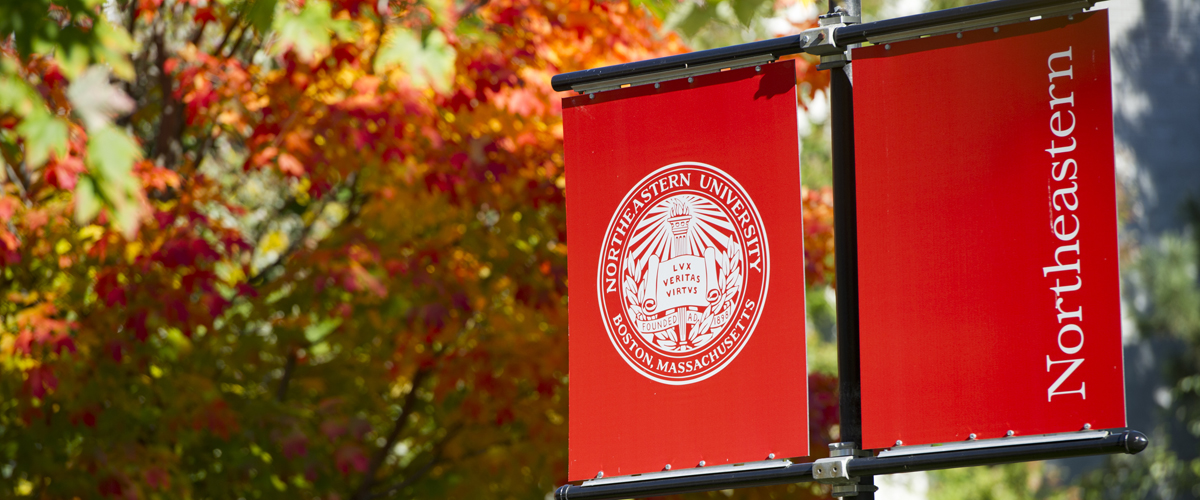by Jeff Cutler
Frustrating, enigmatic and enlightening. That’s how Elise Miner describes her scientific research when striving to develop economically sustainable renewable energy sources. These three adjectives provide insight into the scientific process – and feedback – that drives Miner to work harder in her chosen field of chemistry.

Elise Miner, a graduating senior, says the co-op model and the structure of classes encourages students to take initiative in their studies and research.
For her, the science behind developing renewable energy sources is about questions and answers; delving into studies that allow Miner to tackle and solve problems no one else has been able to solve. While it might prove frustrating and puzzling at times, the enlightenment and feeling of satisfaction can be scientific nirvana.
“The ability to dream something and go do it, and to find something that no one else before you has found makes scientific discovery so amazing,” said Miner. “Solutions and progress that can benefit our entire population or solve the most specific problem about which you are passionate, that is indescribably fulfilling.”
According to Miner, Northeastern University’s approach to education has been integral to her drive and dedication. She said the co-op model and the structure of classes encourages students to take initiative in their studies and research. The entire system, she said, empowers students to consider and approach problems in unique ways.
A recipient of the William J. Alcott award ‘presented to a senior student who has demonstrated exceptional performance in connection with intellectual activities beyond the requirements of the university curriculum’, Miner clearly has been inspired by the learning environment at Northeastern and the College of Science.
“One of my goals at Northeastern has been to be a positive role model for younger students and an addition to the talented individuals in our College of Science,” said Miner. “Through being awarded the Alcott, I wish to serve as an example of what you can accomplish when you dedicate yourself to a cause you feel strongly about.”
In fact, that dedication allowed her to author two scientific patents (one solo and one jointly) in relation to her work at the Northeastern University Center for Renewable Energy Technology. While Miner plans to further pursue her scientific field of study at MIT, she also intends to continue connecting with and inspiring students and scientists.
She emphasized her role as a leader in the Boston scientific community is important, as is providing scientific exploration opportunities for subsequent generations of chemists while remaining a resource for undergraduate students.
“My research is very important to me, but what I do myself means nothing if it does not benefit, inspire, or positively impact others,” she said.
Miner’s research is poised to identify ways to make our planet run via renewable energy sources. It’s clear she’s already discovered a proven way to ensure sustainable interest in science.
“Science is not an easy field…it is difficult intellectually, it tests your mental stamina and patience, requires a lot of time, and research in particular often requires odd hours,” said Miner. “But if you try it and find fulfillment in science, then the obstacles are well worth it.”

